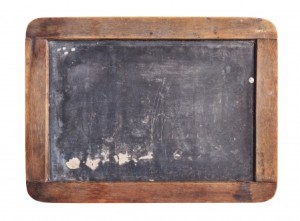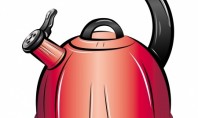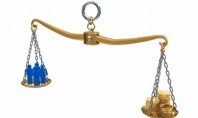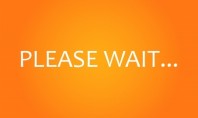Back to the future

Anne Clwyd’s report looking at how patients’ complaints within the UK’s NHS are dealt with has just been published. The headline used by the Daily Telegraph’s for its coverage of the report caught my eye:
Give hospital patients pen and paper to report bad care, report says
The report argues that complaints are an “early warning system” within health care systems, and that it needs to be easier for patients to raise issues about their care or stay in hospital, and systems are needed to ensure all complaints are taken seriously by management. At this point you might have expected one or other of the latest technology fads to have been advocated as the sure fire solution. But no, not a mention of Twitter, Facebook, iPads or mobile phones.
“Simple steps such as putting pen and paper by the bedside and making sure patients know who to speak to if they have a concern” are the feedback channels proposed in the report.
Perhaps I wouldn’t have been quite so startled by the headline if I’d not just been reading a story by Adam Tanner, an expert on the business of personal data and a Fellow at Harvard University’s Department of Government. He has a regular column in Forbes magazine about how businesses use data. His latest piece is a list of simple steps we can all take to protect our privacy (see: 10 Incredibly Simple Things You Can Do To Protect Your Privacy). One of the things he recommends is to use cash when we buy things, rather than credit or debit cards. Unlike electronic money, cash is quite difficult to trace, both in terms of where it comes from and what it is then used to buy.
I think I see a trend here. When Edward Snowden first revealed the activities of the US’s PRISM programme, and the associated UK Tempora programme, one of the reactions of the Russian Kremlin was to rush out and place an order for typewriter ribbons for the hundreds of old typewriters that had been stored in its basements for years, and to earmark 480,000 roubles for buying new ones. It doesn’t matter how sophisticated your cyber security services are, it’s pretty near impossible to electronically hack a letter or document produced by a typewriter. You either have to get hold of the document itself, or at least get access to that document long enough to read or copy it.
It’s not just the Russians who are re-discovering the security merits of older communication technologies. This weekend the Indian press have been reporting that the Indian High Commission in London has reverted to typewriters to compose “for your eyes only” messages. “Top secret cables are now written on typewriters which cannot be tracked,” Jamini Bhagwati, the Indian High Commissioner to London, told the Times of India.
UK diplomats and intelligence spokesmen (and they have all been men) commenting on the activities of the NSA and GCHQ and their bugging of the phones of our allies in the EU and the UN have added their advocacy to this movement back to the future. They have in effect blamed the victims by suggesting that any self-respecting politician or diplomat should expect to have their phone bugged by their allies and therefore Merkel, Hollande and others were very foolish to talk to anyone on their phone. Instead they advise that all confidential discussions should be conducted face-to-face, preferably not within the building you normally work in, and if at all possible out of doors and while moving. As the Indian High Commissioner remarked: “… and it’s very tedious to step out into the garden every time something sensitive has to be discussed.”
Other commentators have noted the possibility of a revival of the art of old-fashioned letter writing (see for example Simon Garfield’s To the Letter: A Journey Through a Vanishing World, published by Canongate, 2013) based not only on the fact that a letter is a more secure channel of communication (it is still a criminal offence, in both the UK and the US to intercept and open another person’s mail without good cause and a judicial warrant) but also that simply sending someone a letter, or a postcard, in and of itself carries a message that makes it a very different kind of communication to an email or a text message.
So, maybe Anne Clwyd’s idea that giving each patient a pencil and a bit of paper in case they want to give some feedback to their carers is not only brilliantly simple, and amazingly cheap, but could also be really effective.
(And I’m now keeping alert for news of the revival of the telegraph system, thinking about investing in a slate mine (paper is so 21st Century) and checking out the price of shares in Wells Fargo.)







